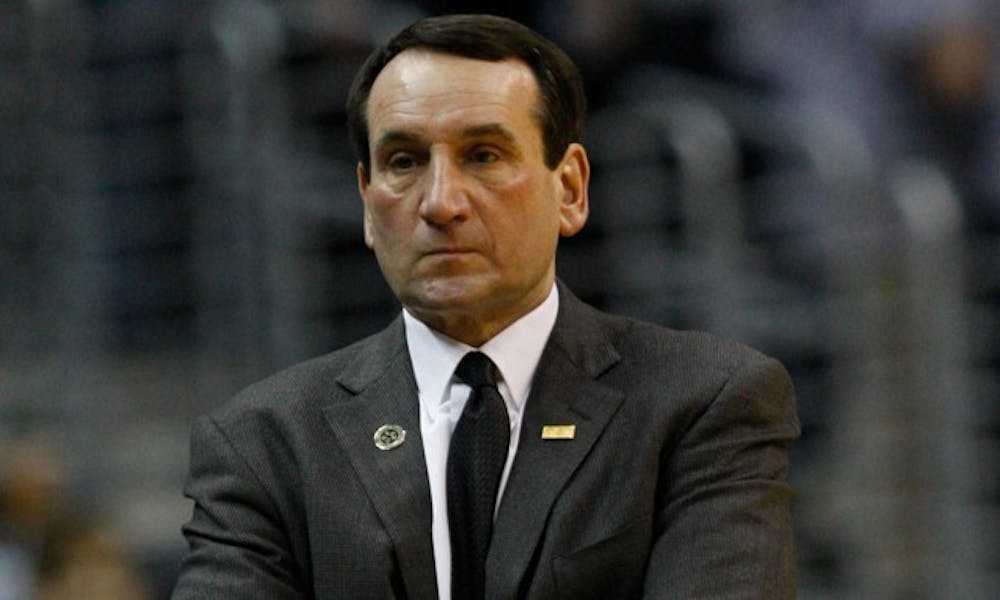Keep going, I thought. Keep going and your heart will stop pounding. Ignore the urge to bear right and find a seat in the Chapel. Don’t keep walking past the building. And don’t you dare stop at the second floor and find an open therapist’s office. My legs ignored my neuroses and kept churning, all the way up to the third floor. Then, a dead end—a locked door. Before I had a chance to think about turning around, someone had spotted me on the other side of the window, with an old flag spelling THE CHRONICLE on the glass. She came to the door to let me in. I looked down at my phone—one of those cheap plastic flip relics—to avoid eye contact until I was inside.
She escorted me through the news hall, adorned with framed copies of memorable, albeit faded, newspapers. Before depositing me in the back—the sports hall, she explained—she stopped in the morgue, where the lights had been flicked off. In my memory, it will always be slightly dim and faintly pungent, even if, now, it’s typically lined with bright Mac screens, meant for hacking away the future of the newspaper. She flipped through a dusty bound volume as my attention flirted with the different years on the anthologies’ spines. We moved on.
She introduced me to the sports editor, wearing a Mets hat off the side of his head, and he looked up and asked: “So, you interested in writing sports, man?”
“Yeah, I guess,” I said. “When can I start?”
Our first years at Duke are benchmarked by a series of open-ended questions. It starts before we arrive, having been forced to wade through a stack of college packets and, if we’re lucky enough, a smaller pile of acceptance letters. We choose our first-semester classes and we select the right professors. We decide whether to go to Marketplace at 6 p.m. or 7:30 p.m., and later that night, we debate which section will have the most cans of warm beer. There are boyfriends and girlfriends, fraternities and sororities, basketball season and concerts, and hopefully, somewhere and sometime, we find an answer to the question of what we want to do here.
Four years later, apparently, here I am, tasked with the charge every senior dreads. At the end of things—this one, even Didion would argue, is pretty easy to see—it is natural to revert to the beginning. For me, that meant answering one more question for one last time. How do I fill this space?
After all, journalism hinges on the delicate balance between questions and answers. Reporters concoct questions and ask others to answer them, and later, journalists ask themselves questions and try to answer them in writing. Deep down, most journalists are probably grown-up iterations of elementary schoolers who can’t stop asking, “Why?” Usually, those kids are annoying. Their classmates find a way to put up with them.
Which is why—in this column, almost certainly my last in this space—I want to do something I haven’t done enough, if ever, in four years in these pages: express my gratitude, for your questions and answers of all kinds.
Finding people to answer questions isn’t as simple as it sounds. David Cutcliffe and Mike Krzyzewski and Joanne P. McCallie aren’t elementary school teachers—bound, by contract, to answer, “Just because!”—and no college athlete can be fully equipped to speak into a throng of digital recorders, capturing every one of their utterances. Over four years, all types of people spoke with me when they had better things to do. Most of this columnist’s insights came from them. There were also sources whose time wasn’t so structured: the professors, the analysts, the experts. They don’t host post-game press conferences and chances are, they’re not on television much, either. They picked up a cold call, and, if I was lucky, they talked until we forgot we had never talked before. I made sure to thank them then, and I’ll do so again now.
Then there are the people who have asked me the toughest questions, demanding more-than-adequate answers. I call them my friends, family and fellow Chronicle reporters and editors. They endured my nonsensical rants—the early, oral drafts of columns, the ones that, hopefully, no one in public will ever hear—and they served as sounding boards, always. They challenged my good ideas, when I had them, and they scoffed at my bad ones, which was more frequent. And, most important, they, too, answered all of my questions. A few hours before deadline, my most common, frantic question was usually something like: “So, what should I write about this week?” My byline is theirs, too, especially because they would never take credit for it.
The last group that deserves thanks, of course, is also the largest and most important. It consists of the people who responded to my most intrusive requests—I hope, at least—and the people who helped shape the answers to my own questions. And, on a good day, it’s much, much bigger than that. It’s you: the reader. Without your time, interest and patience, we journalists have no incentive to ask questions at all.
This really is the end, then. Soon—too soon—my four years here will be up. I’ll head off into the world, asking more of my own questions to new strangers. And yet on this campus, there are still too many questions to be asked, too many questions that beg for answers.
Somewhere out there, I’m thrilled to imagine, there is a fresh crop of green, eager, soon-to-be-freshmen, itching to ask away.
Get The Chronicle straight to your inbox
Signup for our weekly newsletter. Cancel at any time.

